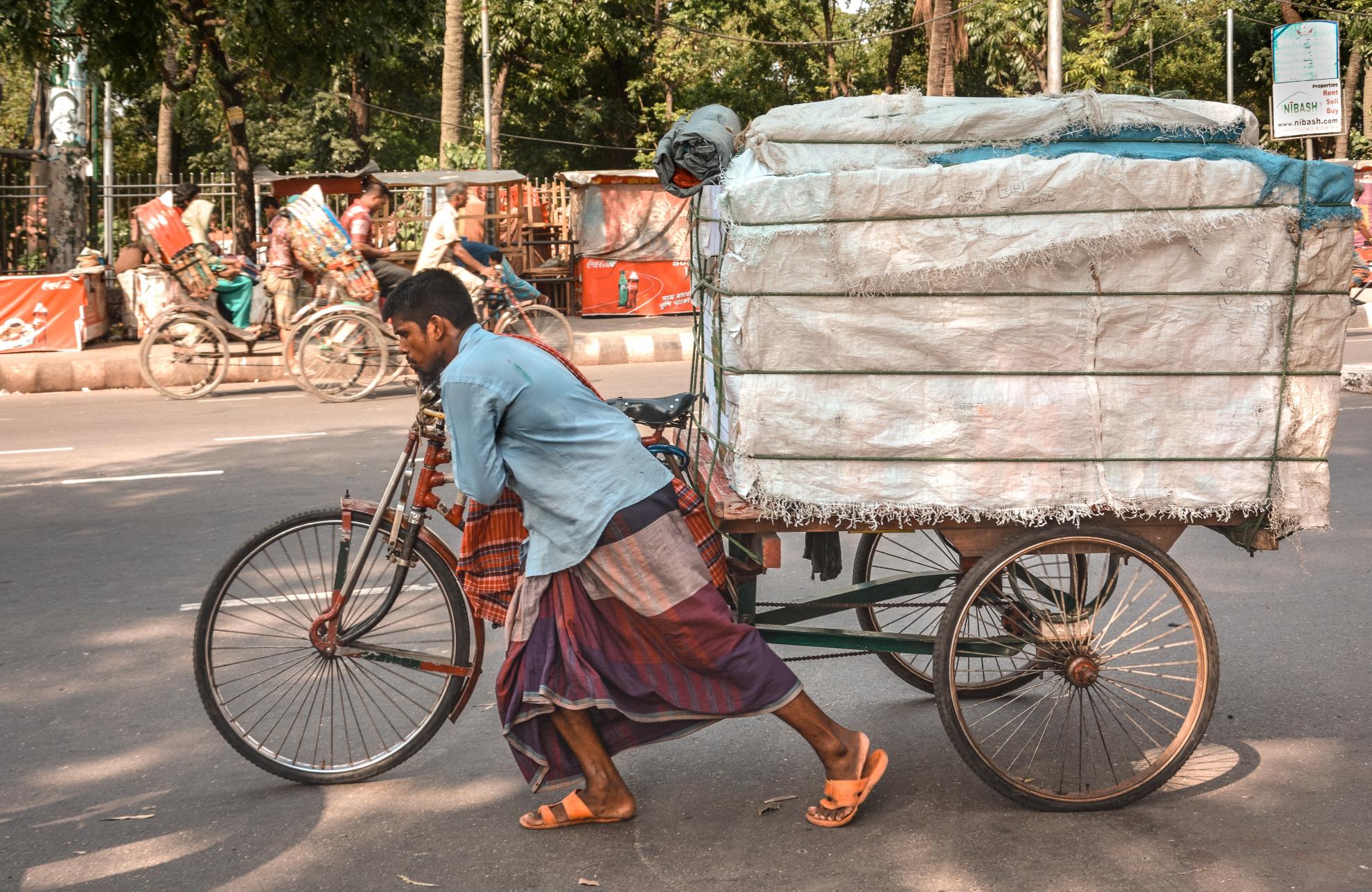December 27, 2022|ג' טבת ה' אלפים תשפ"ג Vayishlach 5783: Katonti - Feeling Small, to Give Rise to Something Big
Print ArticleAs Yaakov prepares for his reunion with a brother who has threatened his life, he is quite nervous. And as part of his preparations, he turns to Hashem in prayer.
And he says to Hashem:
(יא) קָטֹנְתִּי מִכֹּל הַחֲסָדִים וּמִכָּל הָאֱמֶת אֲשֶׁר עָשִׂיתָ אֶת עַבְדֶּךָ כִּי בְמַקְלִי עָבַרְתִּי אֶת הַיַּרְדֵּן הַזֶּה וְעַתָּה הָיִיתִי לִשְׁנֵי מַחֲנוֹת:
I have been made small, from all of the kindness that You have done for me. Why? Because I originally crossed the Jordan River, leaving Eretz Yisrael on the run with only my staff in my hand, and now look at me! I have two camps, wives, children, financial success! I don’t deserve it all!
On the surface level, Yaakov’s tefillah includes this phrase because he is recognizing the fact that he has already received so much from Hashem, he feels undeserving to ask for more.
However, the language that he uses, “KATONTI” is unusual, and it raises questions for the commentators. What is it that we are supposed to learn from this statement of Yaakov Avinu?
And I want to share with you this morning, two approaches, which I believe are really one idea, to give us a sense of the feeling Yaakov had at that time as well as a lesson we can take with us as well.
The Baal HaTanya, Rav Schneur Zalman of Lidai, the founder of Chabad, says an incredibly insightful explanation.
He points out that sometimes in life things are quiet, calm, and simple. We may be lacking certain things, and we are hopeful that we can receive them. We daven to Hashem, hopefully we feel connected. And sometimes it is specifically in these moments of need, where we feel that real void, LACKING in our lives, when we feel MOST connected. Because we have nowhere else to turn but to Him.
And then there are other times, if we are blessed by Hashem, we are given brachos in our life. A spouse, children, a family, a meaningful way to make a living, and the list goes on.
And even as we feel the appreciation for those brachos, sometimes as our lives become so FULL of bracha, we can find ourselves being somewhat DIMINISHED, feeling a little smaller, overwhelmed by all we have, or simply so busy with it all, that we fall back, a little further away from Hashem.
And this, says the Alter Rebbe, is what Yaakov was lamenting to Hashem.
Yaakov feels so embarrassed. “I crosses that river 20 years ago,” says Yaakov, “and I had nothing! Just my stick! And now, look at what you’ve given to me! Yet, I feel more distant that I felt then. Even as you have given me so much, I am worried that I have allowed all of this bracha to take me over, and I haven’t spent enough of my energy keeping me close.”
According to the Alter Rebbe, Yaakov’s “Katonti!” I have become small, is a lament at not having the proper hakaras hatov for all Hashem has given him, and a desire to bring himself close once more.
But there is another very beautiful pshat, which is offered by the Pnei Menachem, Rav Pinchas Menachem Alter, the 7th Gerrer Rebbe, who passed away in 1956:
He quotes a beautiful line in the Rambam’s commentary on the Mishna: The very last Mishna in Sota refers to Rebbi Yossi KATNUSA. The Mishna asks why he was called “KATNUSA” the Small one, and the Mishna answers because he was KATNUSAN SHEL CHASSIDIM. He was literally, the small one of the chassidim.
And the Rambam there explains what this means:
שרשם לפי ששורש כל דבר וראשיתו קטן.
It doesn’t mean he was the smallest of these very pious people. Rather, just the opposite, it means he was their ROOT, the one from whom all of them learned. And it is referred to as KATAN because the beginning of anything that sprouts and grows is usually SMALL.
Says the Pnei Menachem: To be a katan, in the words of chazal, often means to be someone who makes him or herself small, someone who is humble, not looking for accolades. But, he writes, it is the person who is a KATAN, who is humble, who is also KATAN, a ROOT. It is that humility that gives way to incredible growth in the future.
According to the Pnei Menachem, what is Yaakov telling Hashem? KATONTI mikol hachassadim, Hashem, even as you have showered me with such immense bracha, I have tried my best to continue to make myself a KATAN, someone who can remain humble, to understand that all of the brachos in my life come to you.
And in doing so, I have tried to lay the groundwork for my children, for my family to live a life that is committed to You.
As the rebbe himself writes:
Kaasher Maktin Ish Yisrael es Atzmo, Azai yotzin min hashorashim anafim u’peiros.
When we live life of humility and gratitude, we are sowing the seeds of a life of meaning, simcha, and kedusha for ourselves, our family, and anyone who interacts with us.
And what I love about these TWO ideas, is that I don’t believe they are mutually exclusive. Yaakov could have felt – and likely DID feel – these two emotions at the same time.
He is standing in front of Hashem, after years of prosperity and bracha, once again feeling all alone, with nowhere else to turn, frightened of his brother Esav. And it reminds him of how he felt that night 20 years earlier when he was first running from that very same brother, Esav, and he turned to Hashem.
And, like so many of us at different times in our lives, as Yaakov looked back at his reaction to the brachos in his life, he felt some sense of regret that he hadn’t remained quite as focused on his relationship with Hashem, even as he was receiving so much from Him. Katonti Mikol HaChassidim.
Yet, at the same time, Yaakov does not allow those feelings to overwhelm him. Rather, he tells G-d that this realization will simply be the fire for his renewed commitment to live a life of humility and gratitude, and to sow the seeds of a beautiful family committed to the values of Torah.
We say at the bris of a baby boy, Ze HaKatan Gadol Yihiye. And of course, the simple explanation is that we hope this child will grow to be a healthy, successful adult oveid Hashem. But perhaps with this renewed explanation we have an additional layer to that bracha.
When a child is Katan, when he is small, we daven, ze hakatan, if we, his parents, those who will influence our own children, can be KATAN, can live lives of humility and gratitude, sowing the seeds of beautiful midos tovos, GADOL YIHIYE, this child will grow to be a GADOL, to be great.
This is not simply a bracha, but a CHARGE to all parents, reminding us that we have the power to create that influence on our children and all those around us.




